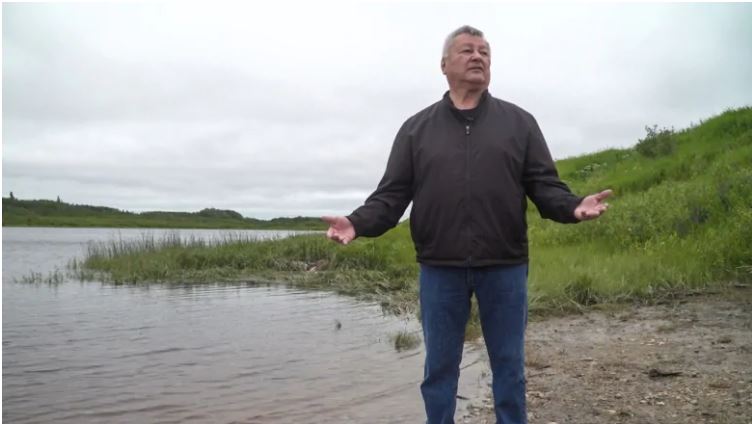The City of Iqaluit says it lost between six and 10 million litres of water over the past three days as crews worked to address problems with its piped water system. The city shut down all water services on Saturday while crews repaired the water line near the Astro Hill complex where a major leak had been reported early that morning. Water was restored for most of the city by Saturday night, while a medical boarding home was hooked back up to the system by Sunday afternoon.
The Grand River is full of contaminants says award winning Indigenous McMaster prof.
"I don't think any of us were really prepared for the scope and magnitude of the problem so we had to continuously write more grants to address emerging issues. More than anything, it was shocking," said Martin-Hill, who is Mohawk and Wolf Clan. "I really assumed the worst case scenario was going to be in Alberta and to find out the kinds of contamination that have gone into the Grand River for a century, the problems here are much worse."
Alberta ranchers get relief package of $136M from province to help with drought conditions
The Alberta government is giving $136 million of financial relief to livestock producers and beekeepers, after drought conditions and the pandemic took a toll on the industry. Premier Jason Kenney said at a press conference on Friday that the money is part of the AgriRecovery program — which combines efforts of the federal and provincial governments. According to a release issued Friday, the federal government agreed to $100 million for immediate relief for Ontario, Manitoba, Saskatchewan, British Columbia and Alberta.
Buffalo Pound water treatment plant to get $222-million overhaul
The Buffalo Pound water treatment plant, which supplies drinking water to nearly a quarter of Saskatchewan residents, is getting $222 million in upgrades to refurbish its aging infrastructure. The project is expected to start construction in early 2022, with costs being split across several levels of government. Ottawa will contribute $89 million, Saskatchewan will chip in $74 million and the Buffalo Pound Water Treatment Corporation, which is owned by the cities of Regina and Moose Jaw, will contribute $59 million.
Government of Canada launches consultation process for new Canada Water Agency
“Through the Canada Water Agency, our government is looking to strengthen collaboration between the federal government, the provinces, territories, Indigenous peoples and other partners to find the best ways to safeguard our freshwater consultations are an important part of this process and I look forward to input from Canadians,” Terry Duguid said in a statement. Mr. Duguid is Parliamentary Secretary to Minister Wilkinson and has been key in the development process. The discussion paper, ‘Toward the Creation of a Canada Water Agency,’ presents key issues and provides an overview of the federal government’s existing activities to enhance freshwater management, and a virtual national freshwater policy forum is planned for January 27 and 28. A series of regional forums will be held in February that will provide additional opportunities to participate in consultations. The discussion paper and additional information can be found at placespeak.ca. Comments can be submitted until March 1.
First Nations communities pursue clean drinking water through the courts
This time of year, with the temperature plunging below -20 C, a snowmobile and an ice chisel are required tools for anyone in Tataskweyak Cree Nation in need of fresh water. There’s the bottled stuff, trucked into town courtesy of the federal government, but the weekly shipment of 1,500 cases is only sufficient to meet basic consumption needs. For cleaning, cooking and basic hygiene water, many residents need a supplementary source. And rather than use their tainted tap water, they follow a snowmobile trail several kilometres to Assean Lake, pails in hand.
Oneida Nation of the Thames tap water different than neighbouring non-Indigenous communities
ONEIDA NATION OF THE THAMES — Jennifer George’s home sits on a gravel road that separates this Indigenous community near London, Ont., from the neighbouring township of Southwold. On George’s side of the road, virtually no one trusts the drinking water that flows from the Thames River to their homes. Many have the same 18-litre blue jugs that line the floor of George’s kitchen, ubiquitous sources of water for drinking and cooking.
8-10 years to fix Attawapiskat water problems, chief estimates
It's been one month since Attawapiskat First Nation declared a state of emergency over its poor water quality. The measure was taken in the northern Ontario community due to high levels of trihalomethane (THMs) and haloacetic acids (HAAs) in the water the residents use for bathing and cooking. The fly-in community has a separate system for its drinking water.










